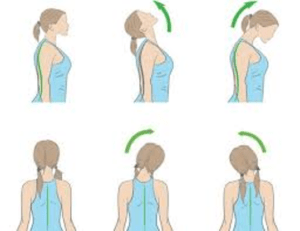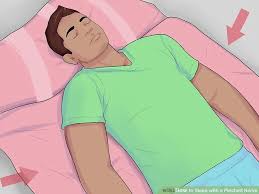What is a trapped nerve?
A trapped or pinched nerve means you have a compressed nerve. It can develop when a nerve root is inflamed, which is the section where it branches off from your spinal cord.
There are many different places in your spine that you can suffer from a trapped nerve, but having this in your neck can cause numbness, tingling, weakness, and pain to your arm and shoulder.
It is quite a common injury and it normally affects adults who are middle-aged and elderly. It occurs when one or several discs in your cervical spine become(s) herniated, meaning it slides out of position and puts pressure on a nearby nerve. Having this injury in the neck can cause immense pain and is very debilitating.
What are the early signs and symptoms of a trapped nerve in your neck?
This injury can come on suddenly and for no real reason; from activities such as lifting something heavy or even blowing your nose. You will feel pain along your shoulder, arm, elbow, and hand. You may have numbness and tingling sensation in your hand. This can vary from quite mild to severe.
How is a trapped nerve diagnosed?
Your doctor will ask you about your symptoms, such as when you first noticed them and if you remember doing anything at the time that brought on the pain. They will ask you to do some simple exercises to assess the strength and mobility of your neck and arm, and they will try to understand how the pain is impacting your daily life. They will then refer you for an MRI scan of your neck which will show clearly if you have a trapped nerve or not.
What is the treatment of a trapped nerve?
After your diagnosis, your doctor will encourage stopping any exercises or activities that are aggravating your symptoms. Physiotherapy can help by strengthening and stretching of the neck muscles in the affected area to relieve any pressure on the nerve.

They may also recommend a steroid injection which is done under a CT machine to allow the radiologist to guide the needle into the correct part of your cervical spine where your disc has herniated. This can give you tremendous relief, but it’s simply to relieve your symptoms and is not a cure.
If this doesn’t work and you are still suffering, your doctor may recommend surgery. The type of surgery will largely depend on which actual nerve is trapped.
How should you sleep with a trapped nerve in your neck?
For some, sleeping can become not just uncomfortable but unbearable. Having a trapped nerve in your neck is extremely painful and many just cannot get a good night’s sleep.

There are a few tips to help you get a good night’s sleep:
- Use a firm mattress to support your whole body better. This will prevent your body from folding in on the nerve and making it more painful. If your mattress is soft, consider placing a few boards underneath to increase firmness and prevent the bed from sagging.
- Laying on your back will be the most comfortable position for you. This position will help alleviate some of your pain caused by the trapped nerve.
- Ensure your pillow is at the right level.
- Raise the head of the bed. You can put something under the head of the bed to help raise it by about six inches.
- Try placing your arm in a comfortable position. Many find it comfortable to sleep on their back and prop up their bad arm and hand on a pillow. Do not sleep on the affected arm as this can make the condition worse and more painful.
- Using a heating pad on your neck will provide you with some soothing pain relief. Try using a heat pad before going to bed.
How long does it take to get better?
The time scale for recovery differs for everyone. On average, it can take from six to 12 weeks for a trapped nerve to repair itself.
Most pinched nerves are temporary and can be treated at home with the right physiotherapy and medication. However, it must be noted that there are some cases where the condition becomes chronic. In these cases, lifelong steroid injections or even surgery is required to manage symptoms.
How physiotherapy can help your neck pain
We will do whatever we can to get you on the fastest route to recovery. Some of the treatment methods we use include:
- Mobilisation
- Strengthening exercises
- Myofascial trigger point release
- Pilates
- Cross-friction massage
- Stretching and range of movement exercises
- Acupuncture
- Functional exercises
- Kinesio-taping
